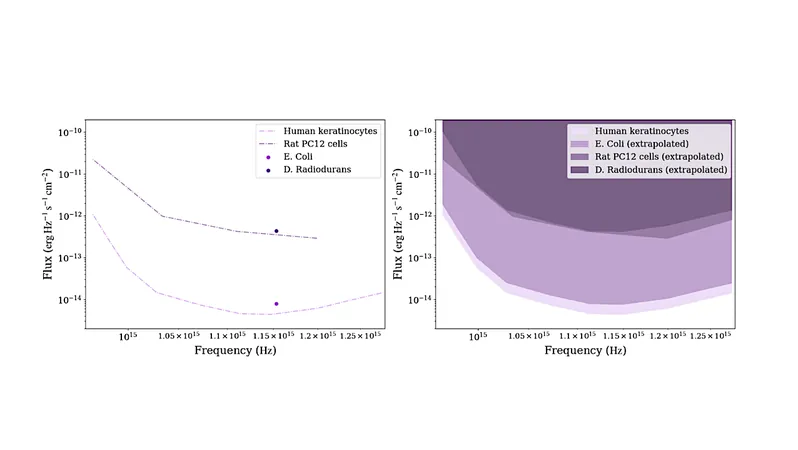
Shocking Study Reveals How Traumatic Brain Injuries Catastrophically Affect Children's Brains Differently Than Adults
2024-11-27
Author: John Tan
Shocking Study Reveals Differences in TBI Effects Between Children and Adults
Recent research has unveiled alarming insights into how traumatic brain injury (TBI) impacts children compared to adults. This groundbreaking study indicates that pediatric patients are not just more susceptible to TBI but can also suffer from severe and devastating outcomes following injuries of all magnitudes, including mild cases like concussions.
Study Overview
Led by the esteemed consultant neuropathologist Professor Willie Stewart from the University of Glasgow, the study analyzed postmortem brain tissue from 81 children aged 3 to 18, contrasting their results with those from 62 adults over the age of 19 who died shortly after experiencing a traumatic brain injury. The findings are shocking: pediatric cases showed significantly more severe brain swelling and vascular damage after trauma, indicating a unique vulnerability in younger patients. The research explains that this extreme reaction may stem from inherent differences in the structure and resilience of children's blood vessels.
Importance of the Findings
This revelation is critical, as TBI is already recognized as the leading cause of death and long-term disability among children and adolescents. The study highlights the urgent need for heightened awareness and proactive measures in managing TBI, especially in contact sports.
Expert Insights
Professor Stewart emphasized, "This research has considerable implications for understanding TBI in younger individuals. Pediatric patients seem particularly at risk for catastrophic outcomes, reinforcing the importance of our concussion management motto, 'If in doubt, sit them out.' This is especially crucial in youth sports, where the potential consequences can be dire."
Historical Context and Comparison
This isn't the first time Professor Stewart has brought attention to the repercussions of brain injuries in athletes. Past studies revealed that international rugby players have a significantly higher risk—about 2.5 times greater—of developing neurodegenerative diseases, irrespective of their playing position. Additionally, groundbreaking findings from the FIELD study funded by major football organizations shed light on neurodegenerative risks among former professional footballers.
The CTE Connection
Moreover, chronic traumatic encephalopathy (CTE), a severe brain condition linked to repeated head injuries, has been increasingly documented in the brains of former athletes, particularly in contact sports. These findings are a wake-up call for better protective measures for young athletes and a reevaluation of how concussions are handled at all levels of sport.
Call for Action
As awareness of the risks associated with TBI in children continues to grow, advocates are calling for urgent reforms in sports safety protocols to ensure the health and well-being of young athletes. The need for further research in this vital area cannot be overstated, as it holds the key to safeguarding future generations against the profound impacts of brain injuries.


 Brasil (PT)
Brasil (PT)
 Canada (EN)
Canada (EN)
 Chile (ES)
Chile (ES)
 España (ES)
España (ES)
 France (FR)
France (FR)
 Hong Kong (EN)
Hong Kong (EN)
 Italia (IT)
Italia (IT)
 日本 (JA)
日本 (JA)
 Magyarország (HU)
Magyarország (HU)
 Norge (NO)
Norge (NO)
 Polska (PL)
Polska (PL)
 Schweiz (DE)
Schweiz (DE)
 Singapore (EN)
Singapore (EN)
 Sverige (SV)
Sverige (SV)
 Suomi (FI)
Suomi (FI)
 Türkiye (TR)
Türkiye (TR)